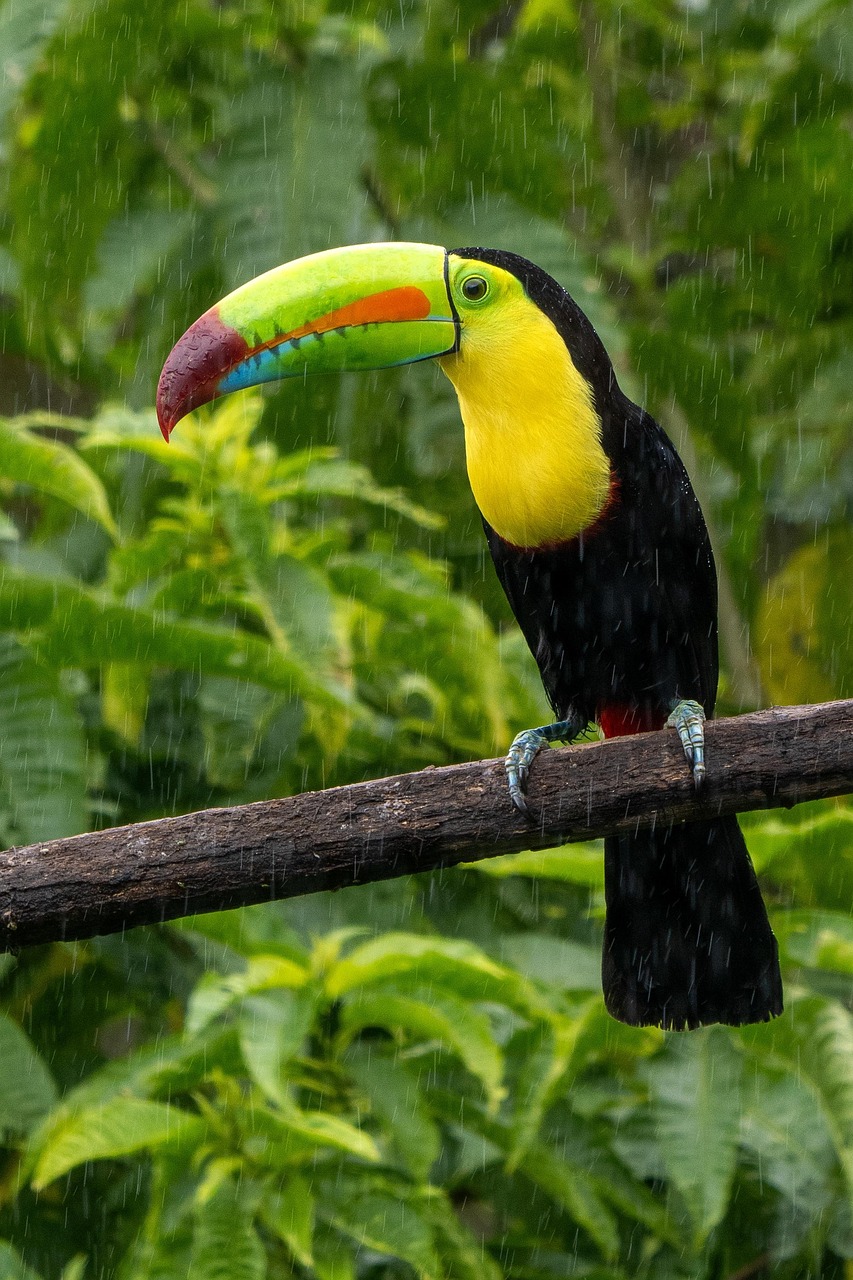Eco-Tourism in Costa Rica: A Sustainable Paradise
Sustainable travel insights and guidance
📅 March 12, 2024
⏱️ 8 min read
🏷️ Travel Tips
Costa Rica stands as a global leader in eco-tourism, with over 25% of its land protected in national parks and reserves. This Central American gem offers unparalleled opportunities for sustainable travel, wildlife conservation, and environmental education while supporting local communities and conservation efforts.
🌿 Costa Rica's Conservation Success
Costa Rica has achieved remarkable conservation success, with over 25% of its land protected and a commitment to carbon neutrality by 2021. The country's eco-tourism model demonstrates how environmental protection and economic development can work together.
 Costa Rica
Costa Rica
🌍 National Parks and Protected Areas
Costa Rica's extensive network of protected areas offers diverse ecosystems and wildlife viewing opportunities for eco-tourists.
Manuel Antonio National Park: One of Costa Rica's most popular parks, known for its beautiful beaches, diverse wildlife, and accessible trails.
Corcovado National Park: Often called "the most biologically intense place on Earth," this park offers incredible wildlife viewing opportunities.
Tortuguero National Park: Known as "Costa Rica's Amazon," this park is famous for sea turtle nesting and diverse wildlife.
Arenal Volcano National Park: Home to Costa Rica's most active volcano and diverse ecosystems from rainforest to cloud forest.
🏨 Eco-Lodges and Sustainable Accommodations
Costa Rica offers world-class eco-lodges that combine luxury with environmental responsibility and community support.
Lapa Rios Lodge: A luxury eco-lodge in the Osa Peninsula that supports conservation and local communities.
Pacuare Lodge: An adventure-focused eco-lodge accessible only by raft, offering unique experiences in pristine nature.
Finca Rosa Blanca: An organic coffee farm and eco-lodge that demonstrates sustainable agriculture and hospitality.
Selva Bananito Lodge: A family-owned eco-lodge that supports reforestation and wildlife conservation projects.
🐒 Wildlife Conservation and Viewing
Costa Rica's incredible biodiversity makes it one of the world's best destinations for wildlife viewing and conservation education.
Sea Turtle Conservation: Participate in sea turtle conservation programs at Tortuguero and other nesting beaches.
Wildlife Sanctuaries: Visit wildlife rescue centers and sanctuaries that rehabilitate and release animals.
Bird Watching: Costa Rica is home to over 900 bird species, making it a paradise for bird watchers.
Marine Conservation: Participate in marine conservation programs and responsible whale watching tours.
🌱 Sustainable Tourism Practices
Costa Rica's eco-tourism industry follows strict sustainability standards and best practices for environmental protection.
Certification Programs: Look for CST (Certification for Sustainable Tourism) certified businesses and accommodations.
Community Tourism: Support community-based tourism initiatives that benefit local communities directly.
Environmental Education: Participate in educational programs that teach about conservation and sustainability.
Responsible Wildlife Viewing: Follow guidelines for responsible wildlife viewing to minimize impact on animals.
🌿 Adventure Activities
Costa Rica offers a wide range of adventure activities that are conducted in an environmentally responsible manner.
Canopy Tours: Experience the rainforest from above with zip-line tours that support conservation efforts.
Whitewater Rafting: Navigate Costa Rica's rivers while learning about watershed conservation and protection.
Hiking and Trekking: Explore diverse ecosystems on foot with guided hikes that emphasize conservation education.
Surfing and Water Sports: Enjoy water sports while supporting marine conservation and beach protection efforts.
🌍 Climate and Best Times to Visit
Costa Rica's tropical climate offers year-round opportunities for eco-tourism, with different seasons offering unique experiences.
Dry Season (December-April): Best weather for hiking and wildlife viewing, with clear skies and less rain.
Green Season (May-November): Lush vegetation and fewer crowds, with afternoon rains that don't typically affect morning activities.
Wildlife Viewing: Different seasons offer different wildlife viewing opportunities, from sea turtle nesting to bird migration.
Festival Seasons: Plan visits around local festivals and cultural events for a more immersive experience.
💰 Planning Your Costa Rica Eco-Tourism Trip
Careful planning ensures you make the most of your Costa Rica eco-tourism experience while supporting sustainability.
Itinerary Planning: Plan your itinerary to minimize travel between destinations and maximize time in nature.
Accommodation Selection: Choose certified eco-lodges and sustainable accommodations for your stay.
Tour Selection: Select tours and activities that support conservation and local communities.
Packing Considerations: Pack light and bring eco-friendly products to minimize your environmental impact.
 Costa Rica
Costa Rica
🌱 Supporting Conservation Efforts
Your visit to Costa Rica can directly support conservation efforts and local communities through responsible tourism practices.
Conservation Donations: Support conservation organizations and national parks through donations and entrance fees.
Local Community Support: Choose locally-owned businesses and community-based tourism initiatives.
Volunteer Opportunities: Participate in volunteer programs that support conservation and community development.
Educational Programs: Participate in educational programs that teach about conservation and sustainability.
🌍 The Future of Eco-Tourism in Costa Rica
Costa Rica's eco-tourism model demonstrates how environmental protection and economic development can work together to create sustainable tourism that benefits both visitors and local communities. As the country continues to lead in conservation and sustainability, it offers an inspiring example for other destinations worldwide.
Key Benefits:
- Conservation Impact: Direct support for wildlife conservation and habitat protection
- Community Benefits: Economic benefits for local communities through sustainable tourism
- Educational Value: Opportunities to learn about conservation and sustainability
- Unique Experiences: Access to pristine natural areas and diverse wildlife
- Environmental Protection: Tourism that supports rather than harms the environment
Remember: Eco-tourism in Costa Rica is about more than just visiting beautiful places—it's about supporting conservation efforts, learning about sustainability, and contributing to a model of tourism that protects the environment while benefiting local communities. Every visit is an opportunity to support this remarkable conservation success story.
 Costa Rica
Costa Rica Costa Rica
Costa Rica